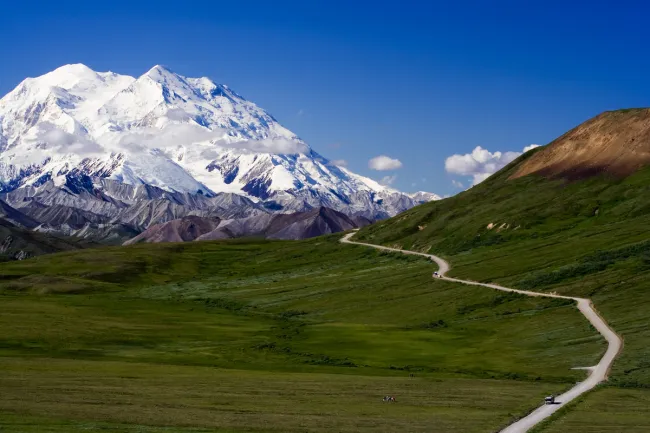Mount McKinley Stripped of Its Colonial Name: Denali Restored in a Bold Move for Indigenous Justice
In a historic and long-overdue decision, Mount McKinley, North America’s tallest peak, has officially shed its colonial name and reclaimed its indigenous identity: Denali. This milestone, finalized by President Barack Obama in 2015, is a powerful rejection of cultural erasure and a step toward honoring the Koyukon Athabascan people, who have called the mountain Denali—meaning “The High One” or “The Great One”—for thousands of years.
A Legacy of Colonial Disrespect
For generations, the Koyukon Athabascan people revered Denali as a sacred site, integral to their cultural and spiritual identity. Yet, in 1896, a gold prospector named William A. Dickey casually assigned the name “Mount McKinley” to the mountain, honoring a presidential candidate who had no connection to Alaska. The federal government cemented this act of cultural appropriation in 1917, ignoring the voices of Alaska Natives who never stopped calling the mountain Denali.
This wasn’t a mere bureaucratic oversight—it was an act of deliberate erasure, dismissing the deep connection between the land and its original inhabitants. It symbolized the colonial mindset that saw indigenous cultures as expendable in the face of Western expansion.
Decades of Resistance and Advocacy
Efforts to restore the mountain’s original name began in the 1970s when Alaska formally recognized the name Denali and pushed for federal acknowledgment. However, these efforts were met with resistance, particularly from Ohio politicians determined to preserve McKinley’s legacy, prioritizing the memory of a president over the heritage of the people who had lived on the land for millennia.
This obstruction wasn’t just about red tape; it was a stark refusal to respect indigenous voices and an extension of cultural imperialism.
Obama’s Bold Stand for Justice
In 2015, President Barack Obama cut through decades of political gridlock and restored the name Denali. This wasn’t merely a symbolic gesture—it was a long-overdue correction of a historical wrong. For Alaska Natives, it was a moment of vindication, a reclamation of their heritage and identity.
While the decision was celebrated in Alaska, it ignited outrage in Ohio, where some viewed it as an affront to their sense of history. But this raised a critical question: whose history was truly at stake?
Trump’s Tone-Deaf Attempt to Rewrite History
In 2025, President Donald Trump proposed reverting the name to Mount McKinley, claiming it honored a “great president” and a “natural businessman.” This move, widely criticized, was seen as prioritizing the legacy of a long-dead politician over the living heritage of indigenous peoples.
Alaskan leaders, including Republican Senators Lisa Murkowski and Dan Sullivan, condemned the proposal as an insult to the decades-long struggle for indigenous recognition. The backlash underscored the enduring significance of the name Denali and the broader fight for cultural justice.
The Bigger Picture: A National Reckoning
The renaming of Denali is about more than a mountain—it’s part of a broader reckoning with the colonial legacies that permeate the United States. Across the country, efforts to reevaluate and restore indigenous place names are gaining momentum, amplifying voices long silenced. This isn’t about erasing history; it’s about setting the record straight.
For the Koyukon Athabascan people, Denali is more than a name—it’s a declaration of existence and a refusal to be erased. It challenges the colonial narratives that have dominated for too long.
Denali Today: A Symbol of Resistance
As of January 21, 2025, the name Denali stands firm, despite attempts to rewrite history. The mountain remains a symbol of natural grandeur and cultural resilience, reminding the world that indigenous voices cannot be silenced.
The debate over Denali’s name isn’t just about semantics—it’s about power, identity, and who gets to define the story of this land. For the Koyukon Athabascan people, Denali is more than a word—it’s a battle cry for justice.
Conclusion: The Fight Isn’t Over
Restoring the name Denali is a victory, but it’s also a reminder of how much work remains to be done. It calls on all of us to confront the colonial legacies that still shape our world.
Denali isn’t just a mountain—it’s a testament to the enduring strength of indigenous peoples and a challenge for America to do better.
The Great One has reclaimed its name. Now, the rest of the nation must reckon with its past and ensure that silenced voices are finally heard.
